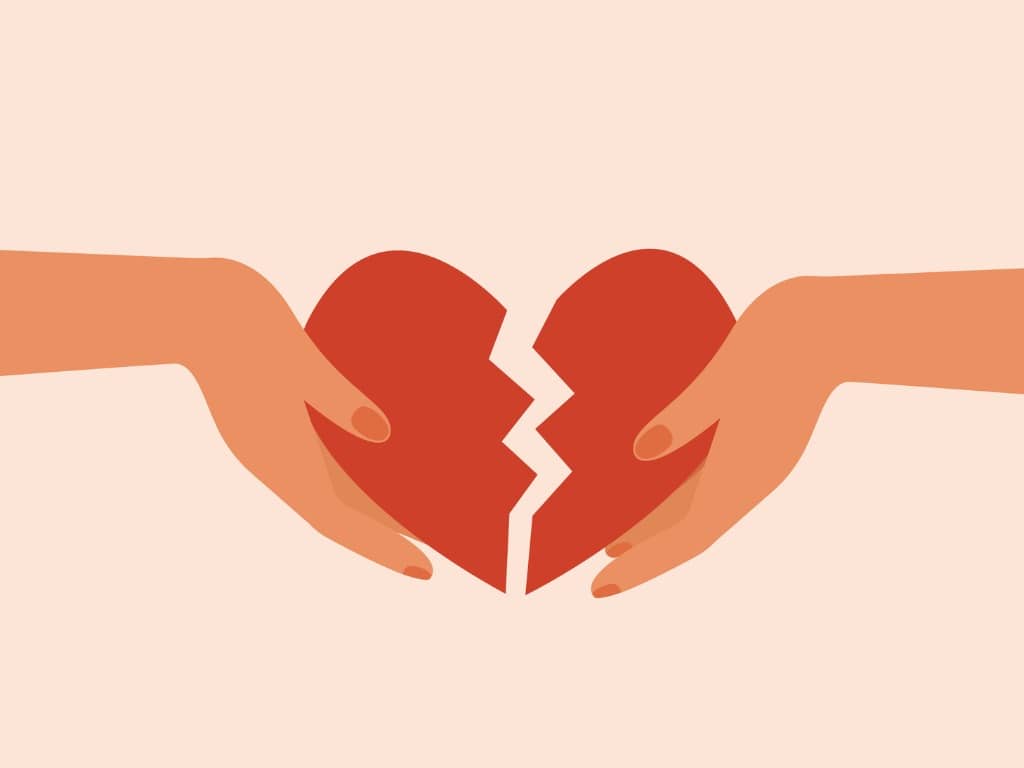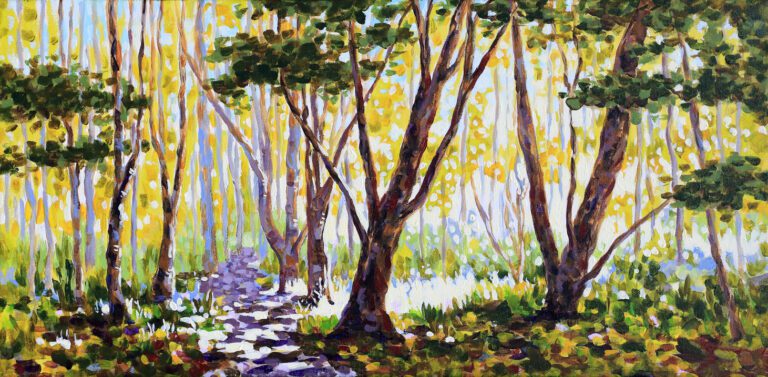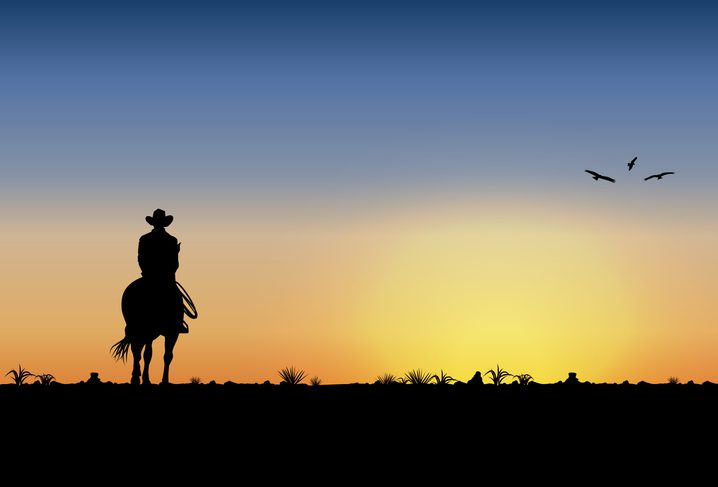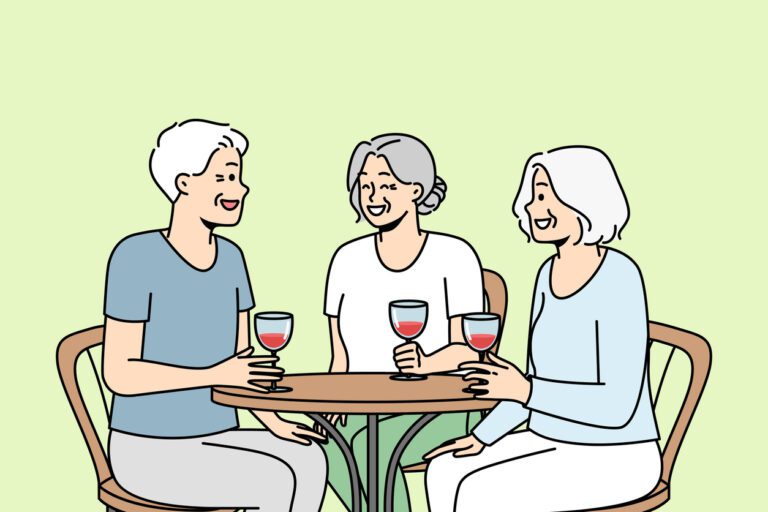My last words to you weren’t I love you. Not I appreciate you, not what would I do without you, no. This could be a cautionary tale about how we should tell those we love that we love them, often. Because any time could be the last time. Because some time will be the last time. This could be me telling you that I wish I had, but it’s not. Because if I had, I know what your response probably would have been.
The last words we spoke are as vivid as if it were yesterday, though it’s 30 years ago. On a school morning like so many others, I went into your room before school without knocking. Normally I’d find you in front of your full-length mirror, preening yourself for the day to come. On that morning the room had been dark as I barged in and pulled the blind, flooding the tiny space with early autumn sunshine, illuminating the band posters plastered across every inch of wall.
I didn’t give a second thought to the fact that it was your bedroom, not mine. That you’d likely still be fast asleep. Never did. What was yours was mine. Mostly. As I stood in front of the mirror admiring my hair, you were stirring in bed behind me.
By way of a greeting, I got “Suck shit, I don’t have to get up for another hour.” This mumbled through a wry smile as you’d sat up yawning, stretching, regarding me in the mirror. That’s right, this was your work experience week, with mum at the Uni. Weren’t catching the bus with me as normal. Something different from the monotony of school. Lucky bastard.
“Fuck you,” I turned and fired back without malice. This was how we communicated, had always communicated as far back as I could remember. Sometimes friends visiting from more conventional homes than ours were shocked by the language we used, were allowed to use in our house. Their parents even more so. But our upbringing, our parents, were anything but conventional.
They believed in giving children agency. Believed that kids could be trusted to make up their own minds about how to be and what to do in the world. Didn’t believe much in structure or boundaries or discipline. They believed that a wholesale expression of emotion was healthier than repression.
When stressed, our parents swore freely at each other and at us, and we in turn learned to swear almost as soon as we could speak. Family life was lively, chaotic, unpredictable and dangerous, never dull. We loved each other fiercely. We hurt each other.
I finished with my hair, grabbed my school bag from where I’d dumped it and walked out without another word to you. Didn’t need one. There’d be plenty of words later, always were. Except there weren’t.
***************
Later.
You are lying on a stainless-steel gurney. White sheet flecked with blood. Face a grimace of pain. Eyes and mouth open, teeth bared. Impossibly thick, blood-stained tube protruding from your mouth. My beautiful big brother. Best friend. Companion in everything. Fifteen years old. Broken. Dead. Gone.
The pity I feel when I look on you like that, is more immense than all the feelings ever felt, put together. And it’s too much for me. That you’ve been so hurt that you’ve died. So hurt that you’ve simply stopped and will never start again. Never.
Vision tunnelled, I turn and stagger down a hallway, fluorescent lighting, stainless steel. My escape arrested by a policeman, not arresting. Just a man caring. Wraps me up, holds me tight. A deafening wailing.
A siren. No, an animal wounded, dying. Me.
***************
Much later.
On a clear, crisp January day, I’d gone home for it. A chilly wind blowing too cold for summer. To the crematorium just up the road from where we buried you. My fourth visit to that unhappy place, where they’d burned up the kids that went after you.
The grief was like nothing I’d felt before. I’d felt worse. Much, much worse. When you’d died. But this was different. There was a tenderness to this, a sense of intimacy, of being curious about the experience and not wanting it gone. Still, it hurt like fucking hell.
She was your sometime girlfriend. Smart, kind, funny. Not long back, she’d messaged me on your birthday though we hadn’t seen each other since school. Then an aneurism in her brain took her at 43. Same age her dad was when one took him. Sometimes life and death take on a strange symmetry.
At her funeral, I saw people I’d not seen since your funeral. Not seen since we’d all shared the collective headfuck that was your death. A bond forged over the death of our innocence. I couldn’t find those kids in the faces of the men and women I saw at her funeral. Instead, I saw people aged beyond their years, worn and scarred by lives hard lived.
Afterwards, I sat by your grave and cried like I hadn’t cried since you died. This time I wasn’t just crying for you, but for everyone who’d died, everyone who’d aged. For every single, tiny cumulative change the world had undergone, so as to render it different to the one we’d shared. What is time? What are memories? Where were all those vibrant kids with their boundless energy and unbridled senses of wonder?
I went with my first. She who’d been there for me when you’d died, had held my hand at your wake and kissed me after. The one with whom I fell in the ways a person can only fall when their heart has first been laid open to the world. The singular discovery of a person made possible only by the complete destruction of all else familiar.
We sat by your grave together, just as we’d done so many times in the months after you’d died. Then we’d been two kids, deep in love and grief. Now two reluctant, middle-aged approximations, somehow more confused and ill equipped to cope with the most evident truths of the world. It dawned on me that although she wore the last 30 years well, she was just as neurotic, just as unwilling or unable to stop and feel as she’d ever been.
As I cried, she’d talked. In innuendos, thinly veiled propositions, nauseating attempts at seduction. Drink, fuck, forget. Some people don’t change. Won’t. Can’t. The only thing worse than growing up is not growing up. And yet she had changed, we both had. Here was more pain. The girl I’d loved was a memory. An apparition from the past, replaced by this woman, 30 years a stranger. We cried and reminisced about how we’d loved each other like no others. Still loved me, she said. You love my ghost I thought, let me live.
When we’d parted, I’d seen the relief in her eyes. Digging for our dead selves can hurt. Sometimes old flames that have burned out shouldn’t be rekindled. People have relit fires in old places. But not this, not today. Too many tears have dowsed this one cold. Best we return to the flames we have already burning at home.
I walked the old bush track out behind the pub, the stairs down to the creek where we’d spent much of the summer before you’d died. Thirty years seemingly nothing to the hanging swamps, still green and verdant and alive with the call of wattle birds. Water skinks and dragonflies darting and flitting about as if it were 1993. Or 1893. Or a time before time.
Here the sadness returned with a vengeance. Something about the stage still being set as it had been, as if I could round a bend and there we’d be. Us kids. You and me, together. I half expected it, more than half.
Blinded by tears, I began to see ghosts. Scenes of summer days a lifetime ago, rendered so real by the quality and depth of my grief that almost I felt I was hallucinating. As if I’d dropped acid. Friends died or long since taken by the ceaseless divisions of life’s long road, appeared to me again in those familiar old haunts.
Afraid I was losing my mind, I couldn’t understand why I’d never felt more sane than I did by that creek with those ghosts. Never felt more alive. Never felt more. This was what it was then to realise I’d been bereft for 30 years and to not have known it. To have been numbed by unwillingness, no, inability, to feel the sheer immensity of feelings your death demanded. Too afraid to feel, part of me had died along with you, remained dead all those years. Dead like the ghosts of the past I’d desperately buried deep, now clawing their way up into
the light, demanding their day
of reckoning. Demanding they
be allowed to die in order that I live again.
I once heard a man say that unless we are to be overwhelmed by too much grief all at once, we must grieve a little in every moment, grieve a little for every moment. For each moment that dies to us and will never come again, each a microcosm of life and death. This from a veteran palliative care social worker, gleaned from long years working with those who were dying and those that survived them. It struck me as true then. But not true enough, not until that day by the creek.
***************
Earlier.
It had just bucketed down the way it does sometimes at the end of summer, almost tropical in its intensity. Lasted only a minute or two. I was on the school bus on the way home, traffic bad, crawling. Must be an accident, the storm maybe. I’d heard somewhere that rain after a prolonged dry period can make the roads slick. Maybe I heard that after.
We crawled through a narrow, sweeping right-hand bend on the highway, diverted around the usual suspects, police, fire, ambulance. Kids craning as one to get a view of the poor bastards who’d crashed. Made difficult by the perspex window at the back of the bus, frosted and warped by the sun. The white four-wheel drive work ute with the logo, only moderately crumpled where the white Volvo wrapped grotesquely around the front of it. Centre of impact the front passenger side.
A visceral jolt in my chest when I saw her. Sitting on a stretcher behind the ambulance, frantically wide eyed and struggling under her oxygen mask, Mum. In a second, my mind seemed to reappraise every single detail of the scene.
Then it was gone. Receding rapidly into the distance as the bus accelerated down the straight, lurching through its gears. Heart jumping out of my chest, barely hearing my own voice.
“Stop, stop. My mum, that’s my mum.”
“No, your mum’s car has those big ugly roof racks, that Volvo had none.”
My mate was right. I knew. The scene had been momentarily crystallised. No roof racks.
“What about my mum on the stretcher?”
“You must be mistaken. It was hard to see clearly through the perspex.”
Arm around my shoulder, my mate reassured me until I got off. Calmed me even. But I knew. I knew.
Dad called. He’d heard sirens from his surgery.
“Are your brothers home?”
“Yep.”
“Mum and Kenny?”
“No.”
I told him what I’d seen. Thought I’d seen. Knew I’d seen. He hung up. Called back. Urgency in his voice, panic.
“Mum’s gone up the mountains, means she’s okay. Kenny’s been taken down the mountains, means he’s not.”
Fuck.
We sat, us three kids in your tiny bedroom, waiting. Eyes hinged to the rug, no one game to begin. I tried a joke, it rang hollow. Startled by dad suddenly there in the doorway, face contorted beyond recognition, angry. Then a bellow, like a bull. A massive sob as he collapsed to his knees.
“Kenny is dead.”
His deep baritone, gone alien in pitch. Always large and imposing, now impossibly reduced by this thing that was happening, had happened. This was to be the first of it, bearing witness to a father losing a son. Framed by the doorway, an image from some great classical tragedy, our dad on his knees, ringing his hands and weeping.
Kenny is dead.
About the Author: Joe Rassaby
Joe grew up in the Blue Mountains of NSW, one of five kids to bohemian parents. In his late teens, he discovered a passion for all things wilderness and spent a decade bushwalking, rock climbing and canyoning, both for work and play. He relocated to the Northern Rivers where he now works in disability support and lives with his wife Lauren and daughter Tonali. Joe has always had a passion for telling stories and began writing recently at the suggestion of friends. This is his first story.







